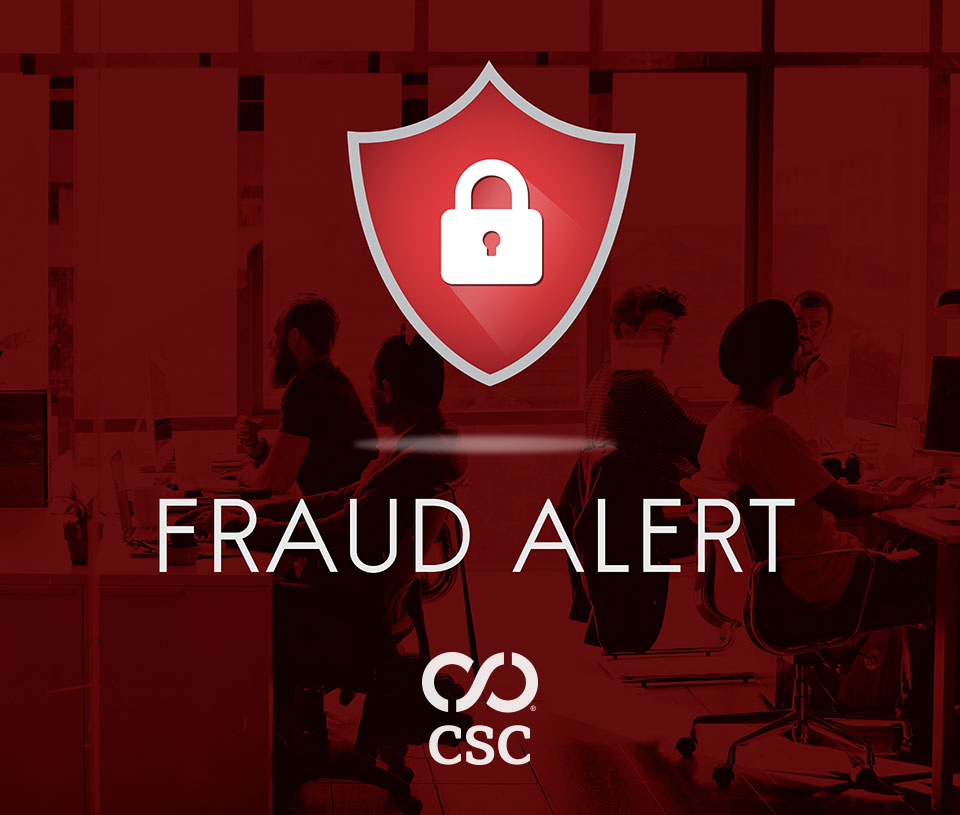
Brand Protection |
Sponsored by |

|



 "Reverse Domain Name Hijacking" (RDNH) is a finding that a panel can make against a trademark owner in a case under the Uniform Domain Name Dispute Resolution Policy (UDRP)... While neither the UDRP nor the Rules provide any further details or guidance, the WIPO Overview of WIPO Panel Views on Selected UDRP Questions, Second Edition, provides some insight into the circumstances in which panels have found RDNH. more
"Reverse Domain Name Hijacking" (RDNH) is a finding that a panel can make against a trademark owner in a case under the Uniform Domain Name Dispute Resolution Policy (UDRP)... While neither the UDRP nor the Rules provide any further details or guidance, the WIPO Overview of WIPO Panel Views on Selected UDRP Questions, Second Edition, provides some insight into the circumstances in which panels have found RDNH. more
 After its first edition in Valencia, Brands and Domains will travel this time to the Netherlands where the second conference will take place from the 2nd to 3rd of October 2017. This time, Dot Stories, the main organizer, chose the Hotel Amrath Kurhaus for the event. Nowadays, more than 600 applicants hold already the right to start their own dot brand, but there are not so many who have been brave enough to use it. more
After its first edition in Valencia, Brands and Domains will travel this time to the Netherlands where the second conference will take place from the 2nd to 3rd of October 2017. This time, Dot Stories, the main organizer, chose the Hotel Amrath Kurhaus for the event. Nowadays, more than 600 applicants hold already the right to start their own dot brand, but there are not so many who have been brave enough to use it. more
 With the end of March upon us already, we take a fresh look at .kpmg and its ongoing .brand usage strategy in our first quarterly report of the year. A review of Alexa.com rankings for .brands and other new gTLDs is included as well as an examination of the factors that have affected registration rates for new gTLD launches from 2019 and 2020. Our MarkMonitor team of experts also analyzes the ICANN Final Report on the new gTLD Subsequent Procedures Policy Development Process... more
With the end of March upon us already, we take a fresh look at .kpmg and its ongoing .brand usage strategy in our first quarterly report of the year. A review of Alexa.com rankings for .brands and other new gTLDs is included as well as an examination of the factors that have affected registration rates for new gTLD launches from 2019 and 2020. Our MarkMonitor team of experts also analyzes the ICANN Final Report on the new gTLD Subsequent Procedures Policy Development Process... more
 Corporate domain name portfolios often consist of domain names that do not resolve to relevant content. In fact, it's not uncommon for less than half of corporate domains to point to live content. Sure there are domains such as those that point to "sucks" sites or those registered anonymously for future use that purposely do not resolve, but those are the exception to the rule. more
Corporate domain name portfolios often consist of domain names that do not resolve to relevant content. In fact, it's not uncommon for less than half of corporate domains to point to live content. Sure there are domains such as those that point to "sucks" sites or those registered anonymously for future use that purposely do not resolve, but those are the exception to the rule. more
 The lexical material from which trademarks are formed is drawn from the same social and cultural resources available to everyone else, which includes domain name registrants. Since trademarks are essentially a form of communication, it is unsurprising that a good number of them are composed of common terms (dictionary words, descriptive phrases, and shared expressions) that others may lawfully use for their own purposes. more
The lexical material from which trademarks are formed is drawn from the same social and cultural resources available to everyone else, which includes domain name registrants. Since trademarks are essentially a form of communication, it is unsurprising that a good number of them are composed of common terms (dictionary words, descriptive phrases, and shared expressions) that others may lawfully use for their own purposes. more
A Swedish court on Friday found all four defendants guilty in a copyright test case involving one of the world's biggest free file-sharing websites. "The Stockholm disctrict court has today found guilty the four individuals that were charged with accessory to breaching copyright laws," the court said in a statement. "The court has sentenced each of them to one year in prison." more
 The outbreak of COVID-19 has caused worldwide disruption -- for whole nations and their economies. Unfortunately, there will be some side effects for businesses. A number of brands will disappear from the streets and shelves, as businesses that fail to weather the storm will have to fold. Companies that do survive will likely focus more on their core markets, pulling brands out of higher risk, less profitable markets... more
The outbreak of COVID-19 has caused worldwide disruption -- for whole nations and their economies. Unfortunately, there will be some side effects for businesses. A number of brands will disappear from the streets and shelves, as businesses that fail to weather the storm will have to fold. Companies that do survive will likely focus more on their core markets, pulling brands out of higher risk, less profitable markets... more
 There is increasingly heated rhetoric in DC over whether or not the government should begin to "regulate the internet." Such language is neither accurate nor new. This language implies that the government does not currently involve itself in governing the internet -- an implication which is clearly untrue given a myriad of laws like CFAA, ECPA, DMCA, and CALEA (not to mention existing regulation of consumer phone lines used for dialup and "special access" lines used for high speed interconnection). more
There is increasingly heated rhetoric in DC over whether or not the government should begin to "regulate the internet." Such language is neither accurate nor new. This language implies that the government does not currently involve itself in governing the internet -- an implication which is clearly untrue given a myriad of laws like CFAA, ECPA, DMCA, and CALEA (not to mention existing regulation of consumer phone lines used for dialup and "special access" lines used for high speed interconnection). more
 Domain blocking mechanisms are an important element of an organization's defensive domain strategy. With the introduction of the New Generic Top-Level Domain (gTLD) Program by the Internet Corporation for Assigned Names and Numbers (ICANN) in 2013, brand owners were faced with a new challenge -- protecting their marks without overburdening their budgets. Defensive domain registrations were and still are an effective way in which a brand can protect itself in domain namespaces. more
Domain blocking mechanisms are an important element of an organization's defensive domain strategy. With the introduction of the New Generic Top-Level Domain (gTLD) Program by the Internet Corporation for Assigned Names and Numbers (ICANN) in 2013, brand owners were faced with a new challenge -- protecting their marks without overburdening their budgets. Defensive domain registrations were and still are an effective way in which a brand can protect itself in domain namespaces. more
 Undersea cables between the U. S. and Cuba have long been intertwined with politics. In 1887, The New York Times reported on the inauguration of a cable in support of the Cuban insurgents fighting for independence from Spain -- a precursor to the Spanish-American war. Phone service between the U.S. and Cuba began in 1921 with AT&T's installation of an undersea cable and AT&T dominated international telephony to Cuba until the 1990s. more
Undersea cables between the U. S. and Cuba have long been intertwined with politics. In 1887, The New York Times reported on the inauguration of a cable in support of the Cuban insurgents fighting for independence from Spain -- a precursor to the Spanish-American war. Phone service between the U.S. and Cuba began in 1921 with AT&T's installation of an undersea cable and AT&T dominated international telephony to Cuba until the 1990s. more
 A split Panel in an early decision under the Uniform Domain Name Dispute Resolution Policy (UDRP) held that parties deserve more than "[i]t depends [on] what panelist you draw." Time Inc. v. Chip Cooper, D2000-1342 (WIPO February 13, 2001). That's one side of the paradigm; the other side makes demands on the parties to prove their contentions, either of cybersquatting (one element of which is proving that respondent lacks rights or legitimate interests) or rebutting the claim (one element of which is respondent demonstrating it has rights or legitimate interests). more
A split Panel in an early decision under the Uniform Domain Name Dispute Resolution Policy (UDRP) held that parties deserve more than "[i]t depends [on] what panelist you draw." Time Inc. v. Chip Cooper, D2000-1342 (WIPO February 13, 2001). That's one side of the paradigm; the other side makes demands on the parties to prove their contentions, either of cybersquatting (one element of which is proving that respondent lacks rights or legitimate interests) or rebutting the claim (one element of which is respondent demonstrating it has rights or legitimate interests). more
 Domain brand squatting can be defined as the unauthorized or dishonest use of a brand or company identifiers in domain names. It is often linked to the use of look-alike domains in bad faith, and we see it all the time. The threat actors behind these domains are called different names, though a prevalent one would be “typosquatters.” The Hot on the Trail of Compulsive Brand Squatters webinar showcased how these people are infiltrating the Internet. The first page of PhishTank’s valid phish search alone as of this writing tells us that domain brand squatting is a real and present danger. more
Domain brand squatting can be defined as the unauthorized or dishonest use of a brand or company identifiers in domain names. It is often linked to the use of look-alike domains in bad faith, and we see it all the time. The threat actors behind these domains are called different names, though a prevalent one would be “typosquatters.” The Hot on the Trail of Compulsive Brand Squatters webinar showcased how these people are infiltrating the Internet. The first page of PhishTank’s valid phish search alone as of this writing tells us that domain brand squatting is a real and present danger. more
 The leaked Trans Pacific Partnership intellectual property chapter has revealed a number of U.S. proposals including U.S. demands for Internet provider liability that could lead to subscriber termination, content blocking, and ISP monitoring, copyright term extension and anti-counterfeiting provisions. This post discusses Article QQ.C.12 on domain names. more
The leaked Trans Pacific Partnership intellectual property chapter has revealed a number of U.S. proposals including U.S. demands for Internet provider liability that could lead to subscriber termination, content blocking, and ISP monitoring, copyright term extension and anti-counterfeiting provisions. This post discusses Article QQ.C.12 on domain names. more
 The FCC has posed a number of provocative questions to AT&T regarding the fact that iPhone subscribers cannot download and use the Google Voice application. AT&T should stifle every motivation to play cute or clever with the FCC. Apple adopted such a strategy when it suggested to the Library of Congress and others that it would be curtains for the free world if iPhone owners could hack, jailbreak, tether, and otherwise use their handsets without fear of violating the prohibition on circumventing copyright laws contained in the Digital Millennium Copyright Act. more
The FCC has posed a number of provocative questions to AT&T regarding the fact that iPhone subscribers cannot download and use the Google Voice application. AT&T should stifle every motivation to play cute or clever with the FCC. Apple adopted such a strategy when it suggested to the Library of Congress and others that it would be curtains for the free world if iPhone owners could hack, jailbreak, tether, and otherwise use their handsets without fear of violating the prohibition on circumventing copyright laws contained in the Digital Millennium Copyright Act. more
 The COVID-19 pandemic has led to the rapid migration of the world's workforce and consumer services to virtual spaces, has amplified the Internet governance and policy issues including infrastructure, access, exponential instances of fraud and abuse, global cooperation and data privacy, to name but a few. The need for practical, scalable and efficient solutions has risen dramatically. more
The COVID-19 pandemic has led to the rapid migration of the world's workforce and consumer services to virtual spaces, has amplified the Internet governance and policy issues including infrastructure, access, exponential instances of fraud and abuse, global cooperation and data privacy, to name but a few. The need for practical, scalable and efficient solutions has risen dramatically. more